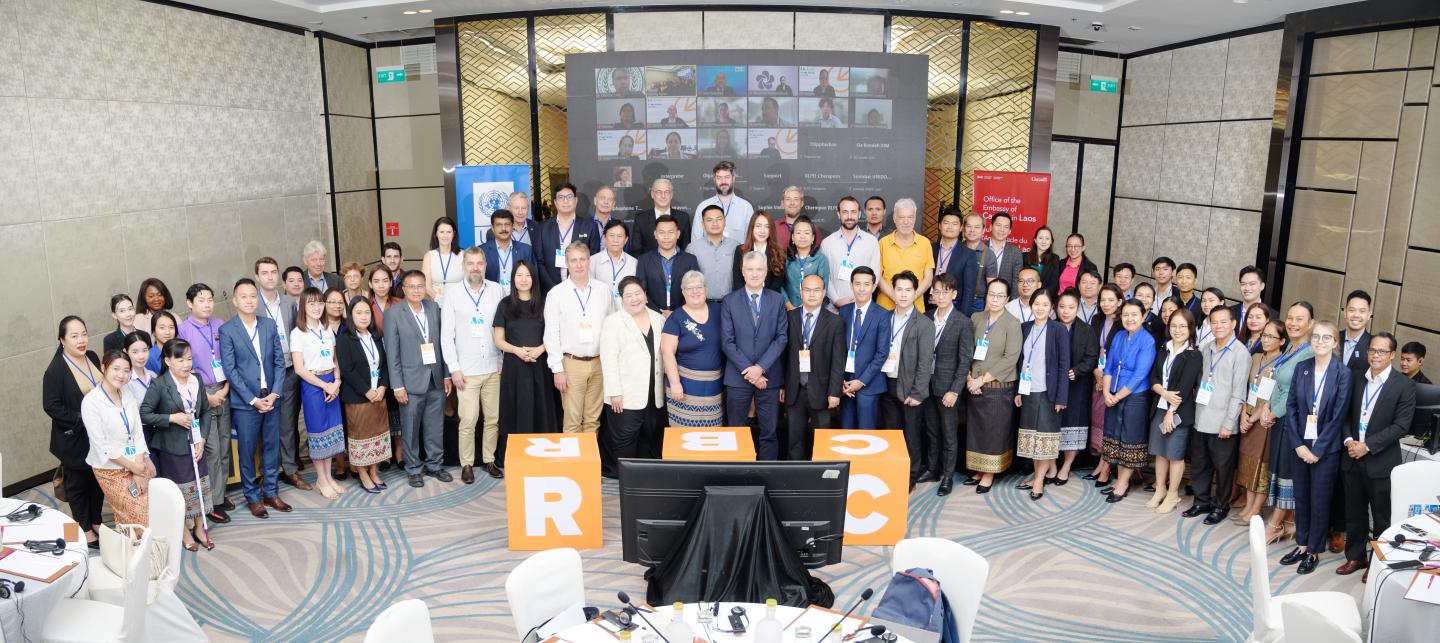Ensuring Smooth LDC Graduation: A Commerce Advisor's Perspective

Table of Contents
Understanding the LDC Graduation Criteria and Process
The United Nations uses specific criteria to classify and graduate Least Developed Countries (LDCs). Understanding these criteria and the graduation process is the first step toward a successful transition. The UN's Committee for Development Policy (CDP) plays a vital role in this process, regularly reviewing countries' progress against established thresholds. LDC graduation isn't a sudden event; it's a carefully monitored process that necessitates proactive preparation years in advance.
- Three key criteria: The CDP assesses countries based on three key indicators:
- Income per capita: Measured by Gross National Income (GNI) per capita.
- Human Assets Index (HAI): This composite index considers factors like nutrition, health, education, and adult literacy.
- Economic Vulnerability Index (EVI): This index accounts for economic vulnerability to factors like natural disasters, commodity price shocks, and conflict.
- The role of the UN Committee for Development Policy (CDP): The CDP conducts triennial reviews of LDC candidates, analyzing their performance against the established criteria. Their recommendations are crucial for the official graduation process.
- Preparation for graduation begins well in advance of official notification: Countries should proactively engage in long-term planning and policy adjustments to ensure a smooth transition and minimize potential negative impacts of losing preferential trade arrangements.
Economic Diversification and Structural Transformation for Post-Graduation Success
Reliance on a few primary commodities often characterizes LDCs' economies. Post-LDC graduation success hinges on economic diversification and structural transformation. This requires moving beyond commodity dependence and investing in value-added industries and advanced technologies.
- Strategies for developing a diversified export base: This involves identifying and fostering growth in sectors with high export potential. This might include manufacturing, tourism, technology, or services, depending on the country's specific strengths and resources.
- Importance of investing in education and skills development for a modern workforce: A skilled workforce is essential for attracting investment and participating in high-value industries. This requires significant investment in education and training programs aligned with market demands.
- Attracting foreign direct investment (FDI) in high-growth sectors: FDI plays a crucial role in boosting economic growth and technology transfer. Governments need to create a favorable investment climate to attract international investors.
- The role of technology transfer and innovation: Adopting and adapting new technologies is vital for increasing productivity and competitiveness in the global market. This requires collaboration with international organizations and private sector partners.
Building Resilience and Managing Economic Vulnerabilities
LDC graduation doesn't eliminate economic vulnerabilities. In fact, newly graduated countries might face increased exposure to global economic shocks, climate change impacts, and pandemics. Building resilience is crucial for long-term stability.
- Developing robust social safety nets to protect vulnerable populations: Social safety nets are essential to mitigate the impact of economic shocks on vulnerable groups. These could include unemployment benefits, food assistance, and healthcare programs.
- Improving infrastructure to enhance resilience to natural disasters: Investing in resilient infrastructure, such as flood defenses and drought-resistant agricultural practices, is crucial for mitigating the effects of climate change and natural disasters.
- Strengthening macroeconomic management and fiscal discipline: Sound macroeconomic policies are necessary to manage economic fluctuations and ensure fiscal sustainability.
- Diversifying funding sources beyond aid dependency: Reducing reliance on foreign aid and exploring alternative funding mechanisms, such as private investment and diaspora remittances, is crucial for long-term financial stability.
Securing Trade Preferences and Access to International Markets
Graduation from LDC status often means the loss of preferential trade agreements granted to LDCs. Securing access to international markets becomes even more crucial post-graduation.
- Exploring regional trade agreements and partnerships: Participating in regional trade blocs can provide access to larger markets and boost regional integration.
- Strengthening export competitiveness through quality improvement and branding: Improving product quality and building strong national brands are essential for competing in global markets.
- Building strong diplomatic relations to secure favorable trade access: Maintaining strong relationships with trading partners is crucial for negotiating favorable trade agreements and resolving trade disputes.
- Utilizing effective trade promotion and marketing strategies: Effective marketing and promotion of exports are crucial for accessing new markets and increasing sales.
The Role of Commerce Advisors in Supporting LDC Graduation
Commerce advisors play a critical role in guiding countries through the complex process of LDC graduation. Their expertise in trade, investment, and economic policy is invaluable.
- Providing technical assistance and policy advice: Commerce advisors offer expert advice on policy reforms, trade negotiations, and investment promotion strategies.
- Facilitating access to funding and resources: They assist countries in accessing funding from international financial institutions and private sector investors.
- Building capacity within government institutions: Commerce advisors work with government officials to strengthen their capacity in managing trade and investment policies.
- Supporting the development of private sector partnerships: They help foster collaboration between the government and private sector to promote economic growth and diversification.
Conclusion
Successfully navigating LDC graduation requires proactive planning, strategic partnerships, and a diversified economic approach. Commerce advisors play a crucial role in guiding countries through this transition, emphasizing economic diversification, resilience-building, and securing sustainable access to global markets. By focusing on these key areas, countries can transform the challenges of LDC graduation into opportunities for sustained economic growth and prosperity. Learn more about successful LDC graduation strategies and how you can contribute to this critical process. Contact us today to discuss how we can support your country's journey toward a prosperous post-graduation future.

Featured Posts
-
 Steelers Pickens Why The Trade Deadline Passed Without A Deal
May 07, 2025
Steelers Pickens Why The Trade Deadline Passed Without A Deal
May 07, 2025 -
 The Karate Kid How The Series Inspired A Generation
May 07, 2025
The Karate Kid How The Series Inspired A Generation
May 07, 2025 -
 My Cousin Vinny Reboot Ralph Macchio Provides Update On Potential Sequel With Joe Pesci
May 07, 2025
My Cousin Vinny Reboot Ralph Macchio Provides Update On Potential Sequel With Joe Pesci
May 07, 2025 -
 Did Trae Young Cheat Analyzing A Controversial Travel In The Game
May 07, 2025
Did Trae Young Cheat Analyzing A Controversial Travel In The Game
May 07, 2025 -
 Ortega Verlaat Scream 7 De Officiele Verklaring
May 07, 2025
Ortega Verlaat Scream 7 De Officiele Verklaring
May 07, 2025
Latest Posts
-
 The Night Counting Crows Changed Their Snl Performance And Its Legacy
May 08, 2025
The Night Counting Crows Changed Their Snl Performance And Its Legacy
May 08, 2025 -
 Saturday Night Live And Counting Crows A Defining Moment In Music History
May 08, 2025
Saturday Night Live And Counting Crows A Defining Moment In Music History
May 08, 2025 -
 Saturday Night Live And Counting Crows A Career Defining Performance
May 08, 2025
Saturday Night Live And Counting Crows A Career Defining Performance
May 08, 2025 -
 The Night That Changed Everything Counting Crows And Saturday Night Live
May 08, 2025
The Night That Changed Everything Counting Crows And Saturday Night Live
May 08, 2025 -
 Counting Crows The Snl Effect And Its Lasting Influence
May 08, 2025
Counting Crows The Snl Effect And Its Lasting Influence
May 08, 2025
